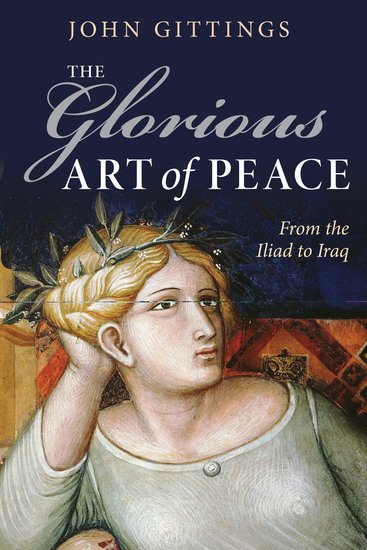By John Gittings
When Ban Ki-moon, speaking in The Hague, called recently on member countries to “give peace a chance” in Syria, and condemned the supply of weapons to both sides, he was taking part in a ceremony at the Peace Palace to mark the centennial of its foundation (a result of the Hague Peace Conference in 1899) which otherwise was ignored by the media.
Not much more attention may be paid to the UN International Day of Peace on September 21, which will also be marked by special events at the Peace Palace. First declared by the General Assembly in 1981, the Day of Peace was fixed to its present date in a resolution (2001), co-sponsored by Britain, calling for the day to be observed as “a day of global ceasefire and non-violence”. One has to search for any British (or most other UN member-states’) interest in the event since then, and most activities are organised by the non-official Peace One Day campaign.
These institutions and events belong to a counter-narrative of peace thought and argument over the past century and a half which is usually neglected by historians and stifled by the narrative of war. Yet there are signs in the present Syrian crisis that the opposing views of those who wish to “give peace a chance” have begun to be heard more clearly. And the contrast with what happened ten years ago in the run-up to the Iraq war is notable.
First was the readiness of the UN Secretary-General himself to speak out before the event, warning the US and its allies that any military action without Security Council approval would be in breach of the UN Charter. In 2003, his predecessor Kofi Annan only pronounced the Iraq War “illegal” after it had been carried out.
Public opinion has grown much more sceptical, across the whole political spectrum, of the evidence offered to justify war. This has nothing to do with alleged “war weariness” or “isolationism”. It is, rather, a healthy wariness, based on the experience of Iraq, of government assertions backed up by unspecified intelligence.

This popular unease lay behind the failure of the British parliament to endorse Prime Minister Cameron’s resolution (even though tentatively worded) envisaging a military strike on Syria. This, coupled with similar unease in the US, then forced President Obama to seek Congressional support before any military action.
Also in marked contrast to the diplomatic run-up to the Iraq War (and to the earlier Gulf War of 1990-91), the Soviet-sponsored proposal for a solution to the chemical weapons issue in Syria, accepted by the Assad regime, was not shot down or discredited by Western governments at the start. This has led to a more hopeful diplomatic atmosphere which may even lead to dialogue between the US and Britain with Iran – essential for any regional settlement. None of this would have been possible if the missiles had been launched.
Finally, there is concern not only with the failure of the UN Security Council to unite in action, but with the lack of UN reform which would make the organisation more in tune with a world greatly changed since 1945.
There is no shortage of ideas on ways to enlarge the Security Council or to modify the veto power– as set out in Paul Kennedy’s study of The Parliament of Man (2006) — only a lack of resolve by member states, and particularly by the Permanent Five, to explore these ideas. A real opportunity for UN reform was missed in the early 1990s when the end of the cold war made it at last possible.
There is growing recognition too that UN Resolution No. 1973 for humanitarian intervention in Libya was misused by the US and its allies to further regime change, poisoning the atmosphere for future agreement in the Security Council by Russia and China. The implementation of any future resolution of this kind will be watched more closely to ensure this does not breach its terms.
Are we now witnessing a more rounded and thoughtful attitude to questions of war and peace in international affairs, and the final abandonment of Western triumphalism which followed the ending of the cold war? Are we seeing what the anthropologist Douglas Fry, in the recently published collection of essays on War, Peace, and Human Nature, calls “a dramatic shift away from ‘nature, red in tooth and claw’” to the view that humanity is peaceful rather than warlike by nature?
War is still very much with us, and we still have a long way to go, but perhaps we are beginning to realise again that, as St Augustine put it, “It is a higher glory to stay war with a word, than to slay men with a sword.”
John Gittings is a peace historian and the author of The Glorious Art of Peace: from the Iliad to Iraq. He has previously written for OUPblog on World Humanitarian Day and the Cuban Missile Crisis.
Subscribe to the OUPblog via email or RSS.
Subscribe to only current affairs articles on the OUPblog via email or RSS.
Image credit: The United Nations Security Council Chamber in New York, 2005. By Bernd Untiedt, Germany [CC-BY-SA-3.0], via Wikimedia Commons



Recent Comments
There are currently no comments.